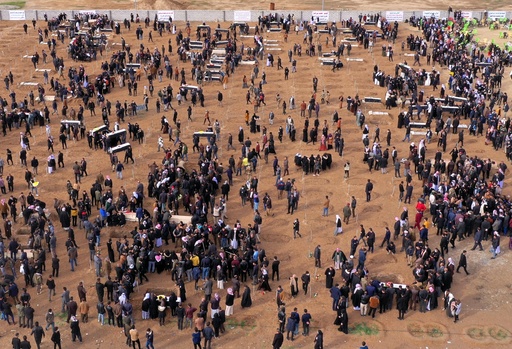
Ten years ago in Kocho, Iraq, the Yazidi community faced a devastating attack by Islamic State militants, resulting in the separation and massacre of men and boys, and the abduction and abuse of women and children. As survivors return to Kocho, plans have been announced for the construction of a new village nearby, funded internationally to house those displaced by one of the worst massacres in the Sinjar region by the Islamic State group.
On August 15, 2014, hundreds were killed in Kocho alone as part of a broader campaign by IS in the Yazidi heartland. Out of 1,470 residents, 1,027 were abducted, 368 were killed, and only 75 managed to escape, according to the Middle East Center at the London School of Economics. Construction for the new village, named New Kocho, near the original location will commence on September 5.
The project is a joint effort by the International Organization for Migration, the U.N. Development Program, and Nadia’s Initiative, aiming to provide housing and essential facilities for displaced Yazidis to encourage their return to their homeland. While some families have expressed their willingness to move to New Kocho, the overall return rate remains low due to challenges such as destroyed infrastructure, limited funding, and security concerns.
The new village will feature various amenities such as parks, marketplaces, healthcare facilities, and housing tailored to each family’s needs. Despite the government’s attempts to close displacement camps and encourage relocation, survivors like Alyas Salih Qasim and Fatima Ismael seek closure from their painful pasts in Kocho and hope to find solace in the new community.
With the enduring fear of IS resurgence, the location of the New Kocho village closer to the mountains serves as a strategic move to ensure the safety of residents. While ceremonies and memorials continue to evoke harrowing memories for survivors, the establishment of the new village symbolizes a step towards healing and rebuilding the shattered Yazidi community in the wake of the tragic events in Kocho.
